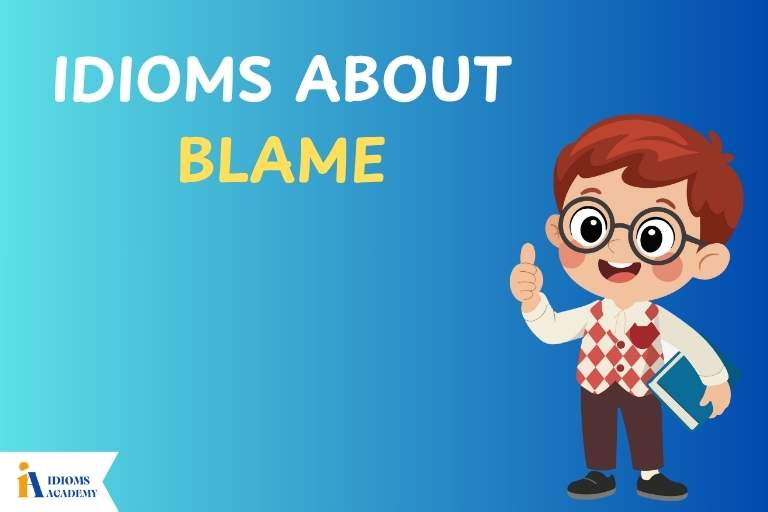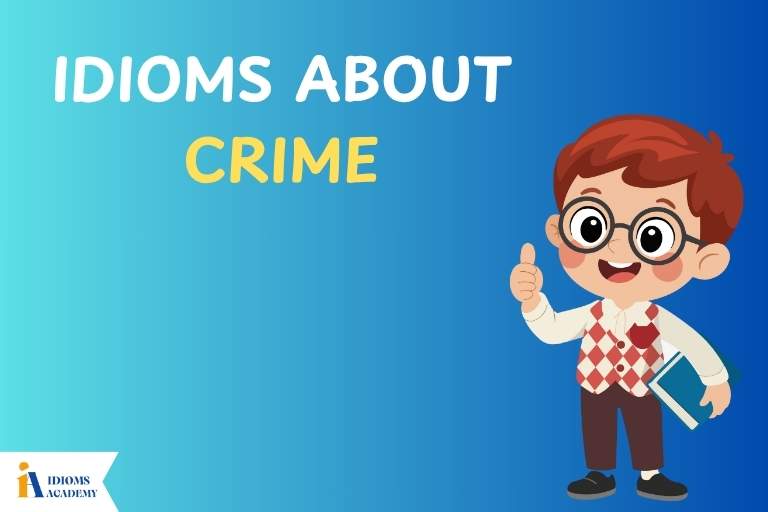Math is more than just numbers. In the United States, many people use fun sayings to talk about math. These special phrases are called idioms. They help describe ideas in a more interesting way. Even if the phrase doesn’t sound like it’s about math, it often is.
For example, someone might say “do the math” when they want you to figure something out. These idioms are used in classrooms, at home, and even during games. They make talking about math more fun. In this article, we’ll learn different idioms about math and what they mean. Let’s explore how Americans use these expressions in everyday life.
Idioms About Math
1. Do the Math
Meaning: Figure something out or solve a problem
Example Sentence:
– If you earn $5 a day for a week, just do the math to see how much you made.
– She said we couldn’t afford the toy, so I did the math and agreed.
Other ways to say: Figure it out, calculate it
Fun Fact/Origin: This idiom is often used when people want others to think through a situation logically.
Usage: Used when someone is expected to find the answer themselves.
2. By the Numbers
Meaning: Follow a clear set of steps
Example Sentence:
– The coach said to play the game by the numbers.
– The teacher wants us to solve the problem by the numbers.
Other ways to say: Step-by-step, follow instructions
Fun Fact/Origin: Comes from doing things in a set order, like solving math problems.
Usage: Used when tasks are done in a careful, planned way.
3. Count On
Meaning: Depend on someone
Example Sentence:
– I can always count on my brother to help me.
– You can count on your teacher to be fair.
Other ways to say: Depend on, trust
Fun Fact/Origin: It uses the idea of counting to show someone is always there for you.
Usage: Used when someone is reliable.
4. Zero In On
Meaning: Focus closely on something
Example Sentence:
– Let’s zero in on the most important part of the lesson.
– He zeroed in on the prize at the fair.
Other ways to say: Focus, aim
Fun Fact/Origin: Comes from the way a scope or camera zooms in to a center point, often at zero.
Usage: Used when paying attention to one main thing.
5. Add Up
Meaning: Make sense or be correct
Example Sentence:
– Her story didn’t add up, so the teacher asked more questions.
– It adds up when you think about it.
Other ways to say: Make sense, seem right
Fun Fact/Origin: From checking if math totals are correct.
Usage: Used when something is logical or makes sense.
6. Divide and Conquer
Meaning: Break a big task into smaller parts
Example Sentence:
– Let’s divide and conquer this big homework assignment.
– We’ll divide and conquer the chores this weekend.
Other ways to say: Split up the work, handle it in parts
Fun Fact/Origin: Comes from old battle tactics but is now used in everyday tasks.
Usage: Used when a big task is easier when broken into parts.
7. A Numbers Game
Meaning: A situation where numbers are the most important
Example Sentence:
– Passing the test is a numbers game—you just need a 70 to pass.
– Winning this game is a numbers game.
Other ways to say: About totals, based on numbers
Fun Fact/Origin: Common in sports and business but used in school too.
Usage: Used when results depend on math or counting.
8. Not Adding Up
Meaning: Something is wrong or confusing
Example Sentence:
– His answer wasn’t adding up, so we checked again.
– If your grades don’t add up, ask your teacher.
Other ways to say: Doesn’t make sense, confusing
Fun Fact/Origin: Based on incorrect totals in math problems.
Usage: Used when things don’t seem right.
9. The Odds Are Against You
Meaning: You’re not likely to win or succeed
Example Sentence:
– The odds were against us, but we won the game anyway.
– She tried hard even when the odds were against her.
Other ways to say: It’s unlikely, low chance
Fun Fact/Origin: Comes from math used in gambling and sports.
Usage: Used when success is difficult.
10. Crunch the Numbers
Meaning: Do a lot of math or calculations
Example Sentence:
– We had to crunch the numbers to see if we could afford a new pet.
– He crunched the numbers for the science fair project.
Other ways to say: Do math, calculate
Fun Fact/Origin: This idiom became popular in business and finance but is used in school too.
Usage: Used when solving detailed problems.
11. Make the Grade
Meaning: To succeed or do well enough
Example Sentence:
– If you study hard, you’ll make the grade.
– She made the grade and got into the school play.
Other ways to say: Pass, meet the goal
Fun Fact/Origin: Comes from getting a passing score or letter grade.
Usage: Used when someone does well in school or activities.
12. Take It to the Next Level
Meaning: Improve or do better than before
Example Sentence:
– Let’s take our math project to the next level.
– His skills went to the next level after practice.
Other ways to say: Improve, go further
Fun Fact/Origin: Often used in games or school to show progress.
Usage: Used when someone is ready to do more.
13. Square One
Meaning: Starting over
Example Sentence:
– We had to go back to square one after our project failed.
– If your plan doesn’t work, return to square one.
Other ways to say: Start again, begin over
Fun Fact/Origin: The phrase may come from board games with numbered squares.
Usage: Used when you need a fresh start.
14. On the Same Page
Meaning: To agree or understand the same thing
Example Sentence:
– The math team was on the same page during practice.
– Let’s make sure we’re on the same page before we begin.
Other ways to say: Agree, understand each other
Fun Fact/Origin: Comes from reading the same part of a book.
Usage: Used when working as a group.
15. Figure Out
Meaning: Solve or understand something
Example Sentence:
– Can you figure out this puzzle?
– I need help to figure out this math question.
Other ways to say: Solve, understand
Fun Fact/Origin: Common in math and problem-solving.
Usage: Used when trying to find the answer.
16. Go Off on a Tangent
Meaning: Talk about something unrelated
Example Sentence:
– We were talking about math, but he went off on a tangent.
– Don’t go off on a tangent during your presentation.
Other ways to say: Get off topic, change the subject
Fun Fact/Origin: In geometry, a tangent line touches a curve at one point, not following it.
Usage: Used when someone gets off track.
17. Multiply Like Rabbits
Meaning: Increase very quickly
Example Sentence:
– The students’ questions multiplied like rabbits.
– The toys in the room seemed to multiply like rabbits.
Other ways to say: Grow fast, increase quickly
Fun Fact/Origin: Comes from how rabbits are known for having lots of babies fast.
Usage: Used to describe fast growth.
18. Piece of the Pie
Meaning: A share or part of something
Example Sentence:
– Everyone wants a piece of the pie when it comes to winning.
– The group got a piece of the pie after helping.
Other ways to say: A share, part of the reward
Fun Fact/Origin: From cutting a pie into equal parts, like division.
Usage: Used when people want a fair share.
19. The Whole Nine Yards
Meaning: Everything possible
Example Sentence:
– She gave the whole nine yards on her math project.
– They went the whole nine yards cleaning the room.
Other ways to say: Go all out, do it all
Fun Fact/Origin: Possibly comes from old airplane bullet belts that were 9 yards long.
Usage: Used when doing the full effort.
20. Back to Basics
Meaning: Start with simple things
Example Sentence:
– We went back to basics in math to review.
– The team practiced back to basics to improve.
Other ways to say: Start simple, focus on fundamentals
Fun Fact/Origin: Often used in school to review easy steps.
Usage: Used when reviewing or learning again.
21. Put Two and Two Together
Meaning: Understand something by using clues
Example Sentence:
– I put two and two together and knew she was planning a surprise.
– He put two and two together to solve the riddle.
Other ways to say: Solve, figure it out
Fun Fact/Origin: Based on the basic math of 2 + 2 = 4.
Usage: Used when someone understands based on signs.
22. In the Same Ballpark
Meaning: Close in number or idea
Example Sentence:
– Your guess is in the same ballpark as mine.
– The answer doesn’t have to be perfect, just in the same ballpark.
Other ways to say: Close, nearly right
Fun Fact/Origin: From baseball stadiums, where the action happens in a space.
Usage: Used when something is almost correct.
23. Calculate the Risks
Meaning: Think about what might go wrong
Example Sentence:
– Before we play, let’s calculate the risks.
– She calculated the risks before joining the contest.
Other ways to say: Think carefully, plan ahead
Fun Fact/Origin: Used in both math and safety decisions.
Usage: Used when making careful choices.
24. Even the Odds
Meaning: Make something fair
Example Sentence:
– Giving everyone the same number of turns evens the odds.
– The new rule evens the odds for all students.
Other ways to say: Make fair, balance things
Fun Fact/Origin: Comes from math used in sports or games.
Usage: Used to create fairness.
25. Square Deal
Meaning: A fair agreement
Example Sentence:
– That trade was a square deal.
– The teacher made sure it was a square deal for all.
Other ways to say: Fair play, honest deal
Fun Fact/Origin: “Square” can mean honest or fair.
Usage: Used when something is fair.
26. A Safe Bet
Meaning: Something likely to happen
Example Sentence:
– It’s a safe bet he’ll get an A in math.
– Ice cream on a hot day is a safe bet.
Other ways to say: Likely, sure thing
Fun Fact/Origin: Comes from betting, where some choices are more likely to win.
Usage: Used when something seems certain.
27. Know the Score
Meaning: Understand what’s happening
Example Sentence:
– She knows the score when it comes to fractions.
– Do you know the score in the game?
Other ways to say: Understand, be aware
Fun Fact/Origin: Related to keeping score in games or school.
Usage: Used when someone understands a situation.
28. A Big Minus
Meaning: A bad point
Example Sentence:
– Not doing homework is a big minus.
– The rainy weather was a big minus for our picnic.
Other ways to say: Bad thing, downside
Fun Fact/Origin: From subtracting or losing value.
Usage: Used to show a disadvantage.
29. Off the Charts
Meaning: Very high or very good
Example Sentence:
– His math score was off the charts.
– The energy at the game was off the charts.
Other ways to say: Very high, extreme
Fun Fact/Origin: Comes from graphs where the score goes beyond the scale.
Usage: Used to show very strong results.
30. Equal Footing
Meaning: Same level or chance
Example Sentence:
– Everyone starts on equal footing in this class.
– The new rule puts us on equal footing.
Other ways to say: Same chance, fair start
Fun Fact/Origin: Used when things are fair and balanced.
Usage: Used when no one has an advantage.
31. Add Fuel to the Fire
Meaning: Make a bad situation worse
Example Sentence:
– Yelling during the game added fuel to the fire.
– Forgetting homework added fuel to the fire with the teacher.
Other ways to say: Make worse, stir up more trouble
Fun Fact/Origin: From how fire grows bigger when more is added.
Usage: Used when someone makes a problem bigger.
32. Keep It in Check
Meaning: Control or manage something
Example Sentence:
– Keep your spending in check or you’ll run out of money.
– He kept his excitement in check during the test.
Other ways to say: Control, manage
Fun Fact/Origin: Comes from checking measurements or rules.
Usage: Used when staying within limits.
33. Number Cruncher
Meaning: A person good at math
Example Sentence:
– My dad’s a real number cruncher—he helps me with homework.
– She’s the class number cruncher in math.
Other ways to say: Math whiz, calculator brain
Fun Fact/Origin: Common in offices for people who handle a lot of math.
Usage: Used to describe people who work well with numbers.
34. Go Figure
Meaning: Something surprising or hard to explain
Example Sentence:
– He studied all night and still forgot his pencil. Go figure.
– The team lost their best player and still won—go figure.
Other ways to say: Imagine that, who knew
Fun Fact/Origin: Used when something seems strange but true.
Usage: Used when something is unexpected.
35. A Mixed Bag
Meaning: A mix of good and bad things
Example Sentence:
– Our test results were a mixed bag.
– The party was a mixed bag—fun but messy.
Other ways to say: Variety, both good and bad
Fun Fact/Origin: Like a bag with all kinds of things inside.
Usage: Used when results or things are not all good or bad.
36. Balanced Equation
Meaning: A situation that is fair or equal
Example Sentence:
– Their friendship is like a balanced equation.
– We need a balanced equation between work and fun.
Other ways to say: Equal, fair
Fun Fact/Origin: From algebra, where both sides must be equal.
Usage: Used to show balance in relationships or tasks.
37. The Sum Total
Meaning: The complete result or amount
Example Sentence:
– The sum total of our efforts is a great project.
– The sum total of what I learned helped me pass.
Other ways to say: All of it, the result
Fun Fact/Origin: Comes from adding up all parts in math.
Usage: Used when talking about the final outcome.
38. Average Joe
Meaning: A normal or regular person
Example Sentence:
– I’m no math expert, just an average Joe.
– Most average Joes use calculators for hard math.
Other ways to say: Everyday person, regular guy
Fun Fact/Origin: Used to describe someone without special skills.
Usage: Used when someone is ordinary or average.
39. Cut and Dry
Meaning: Simple and clear
Example Sentence:
– This math problem is cut and dry—no tricks.
– The rules are cut and dry in this game.
Other ways to say: Clear, easy to understand
Fun Fact/Origin: From dried herbs that are ready to use, with nothing left to change.
Usage: Used when things are straightforward.
40. Add It All Up
Meaning: Look at everything to understand the result
Example Sentence:
– Add it all up, and the project turned out great.
– If you add it all up, he’s done a good job this year.
Other ways to say: Summarize, look at the big picture
Fun Fact/Origin: Comes from adding numbers in math.
Usage: Used when thinking about the full result.
41. Get Your Numbers Up
Meaning: Improve your scores or results
Example Sentence:
– You need to get your numbers up in math class.
– The team worked hard to get their numbers up.
Other ways to say: Improve, raise scores
Fun Fact/Origin: Often used in sports and school.
Usage: Used when talking about improving performance.
42. Play the Numbers
Meaning: Take chances based on statistics
Example Sentence:
– He played the numbers and guessed the right answer.
– She played the numbers and bought a raffle ticket.
Other ways to say: Take a chance, guess smart
Fun Fact/Origin: From games and lotteries where math helps guess.
Usage: Used when decisions are based on math or odds.
43. Beyond Measure
Meaning: Very large or important
Example Sentence:
– Her kindness is beyond measure.
– The joy of winning the math contest was beyond measure.
Other ways to say: Immeasurable, huge
Fun Fact/Origin: From not being able to count or measure it
Usage: Used when something is very strong or meaningful.
Quiz: Idioms About Math
Instructions: Choose the best answer for each question. Each question tests your knowledge of the idioms you’ve learned. Think about how these sayings are used in everyday American life.
Question Key
1. What does “do the math” mean?
A) Play a game
B) Solve or figure something out
C) Count how many people are in class
2. If someone says “add up,” what are they saying?
A) Make sense or seem right
B) Add more people
C) Mix everything together
3. What does it mean to “crunch the numbers”?
A) Eat snacks while studying
B) Work out a lot of math problems
C) Skip a question
4. What does “zero in on” mean?
A) Miss the main point
B) Focus closely on one thing
C) Get everything wrong
5. What does it mean to go “back to square one”?
A) Skip to the end
B) Repeat the same step
C) Start over from the beginning
6. If someone says “that doesn’t add up,” what do they mean?
A) It’s fun
B) It’s confusing or wrong
C) It’s completely fair
7. What does “put two and two together” mean?
A) Solve a puzzle using clues
B) Add numbers quickly
C) Do something wrong
8. If a task is a “numbers game,” what does that mean?
A) It’s based on luck
B) It depends mostly on math or counting
C) It’s all about guessing
9. What does “divide and conquer” mean?
A) Break something
B) Run away from a group
C) Split tasks to finish faster
10. What does “square deal” mean?
A) A hard math problem
B) A fair agreement
C) A quiz about shapes
11. If your grades are “off the charts,” what does that mean?
A) Very high
B) Missing
C) Not good
12. What does “figure out” mean?
A) Watch someone
B) Solve or understand something
C) Change the subject
13. What does “get your numbers up” mean?
A) Improve your scores
B) Memorize your phone number
C) Do fewer problems
14. What does “play the numbers” mean?
A) Write down phone numbers
B) Guess smart using odds
C) Read aloud in class
15. What does “balanced equation” mean when talking about people or tasks?
A) A hard math question
B) Something fair or equal
C) Something very fast
Answer Key
- B – Solve or figure something out
- A – Make sense or seem right
- B – Work out a lot of math problems
- B – Focus closely on one thing
- C – Start over from the beginning
- B – It’s confusing or wrong
- A – Solve a puzzle using clues
- B – It depends mostly on math or counting
- C – Split tasks to finish faster
- B – A fair agreement
- A – Very high
- B – Solve or understand something
- A – Improve your scores
- B – Guess smart using odds
- B – Something fair or equal
Wrapping Up
Math isn’t just about numbers. In the USA, people use many sayings to talk about solving problems, working hard, or making smart choices. These idioms help make everyday talk more fun and simple. When you hear or use phrases like “do the math” or “add up,” now you’ll know exactly what they mean.
These sayings are part of American conversations at school, home, and work. Learning them helps you talk clearly and understand others better—just like solving a good math problem.




